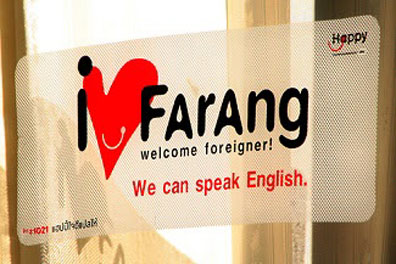English is not an easy language to learn. Talk to any average American these days and you’ll see what I mean. We have too many words that sound the same but mean something different, too many words that should not sound the way they do considering how they are spelled, and too many words that native English speakers have decided should sound differently than tradition dictates (‘Ta’ being a good example. That word used to be ‘the’. If you need to hear it used in a sentence, listen to any speech by our country’s current greatest orator and you’ll see what I mean.)
Politically and geographically (almost) the states of our country are united. Linguistically, traveling from state to state is like visiting a foreign land. Meanings of common words change. Pronunciation vary so widely that it is often difficult if not impossible to understand what someone from a different end of the country is saying. Throw in the British version of our language – and seriously, why don’t they just get their own language? – not to mention what the Aussies do to it and you have to wonder why English is considered the international language.
Ignorance plays a role in the poor use of the English language too. Okay, ignorance plays a major role in the poor use of the English language. And I’m not talking about a certain segment of society that insists that the word is ‘axe’ and not ask. That’s cultural. Vocabulary used to be a basic part of our schools’ curriculum. Now kids don’t even know what that word means. Before I start sounding like a crotchety old fart, the example that first springs to mind is my mother, a woman in her late 80s who – regardless of the number of times I’ve corrected her – still thinks the fleshy part around the teeth in your mouth are called gooms.
Her continued insistence on pronouncing the word incorrectly isn’t so much about ignorance now as it is about obstinance. The bigger question is how she managed to go through eighty years of visits to the dentist without someone having corrected her in the past. You’d think with that many people flapping their gums, someone would have said, “Oh, by the way . . .”
A regular reader recently questioned my use of the word ‘rap’ as in someone gaining a bad rap. Not a native English speaker, he suggested that perhaps I meant rep – short for reputation. Concerned that I’d been using the wrong word all these years I Googled it. Just to make sure. And Google praised me for having such an extensive vocabulary. Had the opposite been true, I would have been thankful that said reader caught my misuse of the word. I would not have been offended by being corrected. But please do not take that as an open invitation to let your pendantic soul soar.
But that does bring me back to my mom’s gums, which are pretty damn healthy for such an old bag. I can only assume no one in the dental profession ever corrected her use of the word out of concern of offending her. Which is not the norm for Americans. We offend people all the time. It may even be our country’s favorite pastime. In Thailand, however, it is a different story.
Good-hearted newbies to Thailand quickly run across glaring examples of bad English. I believe there is a law on the books in Thailand that require all restaurant menus to contain at least one example. Most are good for a laugh. My favorite is the tropical drink known in Phuket as a Mai Thai. Good-hearted newbies, not knowing better, often do the right thing and point out the error. Because you would assume anyone who is attempting to learn and use a language that is not their native tongue would appreciate the assist. Years later, after numerous trips to Thailand and numerous times of having tried to help a local with his or her use of English, they discover that not only are their corrections not appreciated, but that to most Thais correcting them is the same as calling them stupid. It’s a face thing. Which never has anything to do with logic.
Part of the problem is the native English speakers who really shouldn’t attempt to use their mother tongue. Click in to any thread on one of the gay Thailand forums if you need an example. Thais assume farang speaking English are experts at it and adopt the bad English they hear. The problem is that once a Thai has decided something is right, they will never agree to it being wrong. Because that would mean all of the times they used an English word incorrectly they were being stupid. Stupid seems to be one of the English words that all Thais know. It’s a close second to ‘free’, a word that does not even appear in their own language.
English as a second language (ESL) used to be big business in Thailand. Not so much anymore. The interest in learning English has waned right along with the value of English-speaking countries’ currencies. That may be a good thing. Thai English teachers were notorious for teaching improper English and refusing to be corrected. If you think correcting an average Thai is bad, correcting a teacher is even worse. They are held in high regard, telling a teacher he or she is wrong is damn close to calling a member of the royal family a bad name. And if you have ever been stupid enough to do so – the teacher thingy not the royal ‘cuz that one would land you in jail – you probably heard one of the favorite English phrases in the Thai language: “Yes, but in Thailand we say . . .”
Smiling at, and sometimes getting a chuckle out of, errors in English by Thais is a lesson we all learn. Sometimes not quick enough. I have learned, by error, to only correct my friend Noom’s English when he asks. I can also get away with it when he’s trying out a new phrase that he learned from TV. There is some god awful Thai sit-com that he likes that runs a daily English lesson during one of its commercial breaks. Since he is in learning mode, if his pronunciation is off I can correct him then. If the language less is the one at fault I’ve learned to just ignore it. Because obviously if it wasn’t correct it wouldn’t be on TV. Your best rule of thumb in Thailand is to keep your English to yourself.
So I was a bit surprised when we took a quick peak at what was going to be his new place of work, Ocean Boys, the revamped and renovated version of Future Boys that suffered not too much of a future. They had prepared a flyer to hand out along the soi alerting one and all to their grand opening. And the manager handed me a copy asking if the English phrasing was correct. I was amazed. That he asked. Not at that several of the sentences were a garbled attempt at the language. Being the nice guy that I am, I thought before opening my mouth, wanting to offer corrections as a suggestion rather than the corrections they were. Until I felt Noom’s foot tapping mine. He didn’t know that the English was wrong, but did know I was about to commit a social faux pas. Instead of suggesting a better way of saying what they’d come up with, I congratulated them on the wonderful flyer they’d produced. Which was really what they wanted to hear in the first place.
Noom is a great mimic and when he hears me using English that he likes the sound of he adopts those words for his use. And passes them on to his bar mates too. So some of the improper English you hear bar boys in Bangkok us are my fault. I have a fondness for coining my own English words. Noom knows touri. But that one won’t spread because Thais already have a word for that: customer. But I think I’ll introduce the word gooms to him. Then if my mom ever visits Thailand she’ll feel right at home.
Related Posts You Might Enjoy:








Very true, all of that! But I guess life would be boring if everyone used the same flavor of English. Not too long ago, I visited a Brit’s bar with an American friend. They seemed to get along well and talked for a couple of hours. When we left, the American asked me if I had understood one word of what the Brit had said…
There, I did it, I resisted the temptation to write anything about Thais’ use of English. 😛
Congrats on your restraint Alex!
🙂
I have to admit, when I watch a movie from the UK at home I turn on the subtitles for an assist.
Your “Rain in Spain” title might have new reader “Patrick” up his age estimate of you; however, you might argue that show tunes are timeless & common knowledge for today’s refined gay gentlemen.
Bitch.
How dare you refer to me as a refined gay gentleman!
🙂
I had to turn to Google to get your point. And now I’m concerned that I’ve been quoting show tunes without even knowing it.
Happy fucking Christmas to you too Mitch.
I wasn’t familiar myself with the reference until just recently. 😉 I had dinner with the folks & they turned on My Fair Lady afterwards on Turner Classic Movies (a top channel for octogenarians, as you apparently know first hand?). Professor Higgins teaching Eliza Doolittle proper phonetics was an excellent fit with your article.
Well, Happy #*@%* New Year to you as well!
P.S. — Here’s a Fountainbore quiz for you:
Name the musical for: “I feel pretty, oh so pretty! I feel pretty, and witty, and gay!”
[Hint — it wasn’t said by John Travolta.]
Hey, your name rhymes!
🙂
Fuckstick!
(As long as we are going the linguistic route.)
I was gonna say John Travolta!
Sorry, I know I should Google that so I don’t risk losing my gay membership card, but I haven’t a clue.
But I do know the tune (though not the words) and it is now running through my head.
Or was that your real purpose in the first place?
One summer while working in Sequoia-Kings Canyon Nat’l park I quickly learned to distinguish between the various English accents, because New Zealanders and South Africans hate being mistaken for Australians, (let alone Brits) and let you know it.
At this point in the grand scheme of things everyone should just sound like they are from California, unless they are hot and have a sexy accent.
I’d agree with you Jeffrey, even though my relatives back east say they can’t understand what I say.
Kiwis are always amazed when I get their nationality right. But then before they get too confident in themselves, I ask how close to Sydney they live.
In hong kong there is a building called The Rednaxela, yes indeed, The Alexander. They just left it like this, after all if you have buildings named Glorious Garden (a 45 stories high rise with no gardens) and Sure Win Court, The Rednaxela isn’t that bad at all.
That’s okay. The one thing you can count on in the U.S. is if a hotel is called the Seaview Inn it will not be within viewing distance of any body of water.
I believe Canadians have issues with being called Americans or *gasp* Yanks!
As far as our antipodean brothers (bro’s) go they may as well be Australians, there as so many of the daft bastids here anyway. English is indeed a complex and amusing language. That being so it lends itself to a right royal rogering from all and sundry.
I always however remind myself in the land of smiles that the bar boy’s English is usually vastly superior to my Thai. Live and let live with a chuckle now and then.
I’ve never understood Canadians who get pissed when mistaken for being American. It’s what they all aspire to be.
(And thanks for that Al, I don’t think I’ve insulted our friends up north yet this holiday season)
Bar boy tinglish is always good for a laugh – but like you, the fact that they speak better English than I do Thai always pops into my head when one of them mangles my language.
Another movie reference… I watched “Trade” recently and it had a young guy from Mexico insisting that he was American. North American. He also talked about his American friends from Central America & South America also. True!
As for British mangling of their own language… It might be related to poor dental work, but I sure could use subtitles when watching their version of Antiques Roadshow. Queen Elizabeth is easy to understand. Even the actor who played her stuttering father could be understood (not sure if you ever watch modern films), but the commoners need lessons:
Professor Henry Higgins: “All right, Eliza, say it again.”
Eliza Doolittle: “The rine in spine sties minely in the pline.”
Professor Henry Higgins: [sighs] “The *rain* in *Spain* stays *mainly* in the *plain*.”
Eliza Doolittle: “Didn’t ah sy that?”
Professor Henry Higgins: “No, Eliza, you didn’t “sy” that, you didn’t even “say” that. Now every night before you get into bed, where you used to say your prayers, I want you to say “The rain in Spain stays mainly in the plain” fifty times. You’ll get much further with the Lord if you learn not to offend His ears.”
OK, I’ve bothered you enough for today. I’ll let you go watch Lawrence Welk before your nap! 😉
My favorite Mexico movie reference is from Once Upon A Time In Mexico:
“Are you a Mexican, or a Mexican’t?”
Okay, so I’m easily amused.
Um, Lawrence Welk is still on?
Why didn’t someone tell me!!!!
Wouldn’t it be fun to put Mitch and Tim in the same room and lock the door, record the dialogue and be amazed. Just a thought….might change my medication soon.
LOL – The home page of my blog only shows me the first sentence of a comment, and I immediately thought I needed to ask you what paid meds you were on. When I switched over to the comments page, ya beat me to the punch.
Please be careful reading the forums – LMTU is posting again and I’d hate to see what one of his mangled posts would do to the current state of your brain!
🙂
MY wit compared to a semi-literate lush? Outrageous! 😉
Your blog has degenerated into a glorified bitch board since that other one was “locked” — no comics or plastic stool shots here for ages.
What are you talking about? I posted a stool shot on Wednesday.
Oh wait. You said plastic.
My bad.
LMTU just got banned from gaythailand. Not because of something he posted but because the rest of the gene pool couldn’t behave themselves so the mod decided to ban him due to the misbehavior of others. Nice. I’m sure if it was anyone other than LMTU, someone would be upset. Thaiunworthy might even be aghast.
Good god…..LMTU. Still alive? Will sanity ever prevail? Pattaya must still be a hole.
My personal theory is that Pattaya is where the zombie invasion has begun. They are acclimating themselves while being free to mingle with the humans since the differences between them and Pattaya sexpats is so minimal.
?? me ?? what did i do now !!! im kind and caring ,i like to stroke puppy dogs and pussy cats … altho i always look skywards when in pattaya .. its not a question of who you might bump into .. more a case of who might fall on you.
Ah! That explains the satisfied look on all those soi dogs faces recently!
i didnt realise i hadnt read this page .. just the last few comments .. as you said and i now know it to be 100% correct we do indeed speak a different language. the fleshy bit aound the teeth .. i tend to call it a cock .. not gooms or gums .. see totally different!
Um, that’s my mother you are talking about.
ROFL!
🙂 you know it was always my intention on the boards to try and put a smile on peoples faces … but as you say here we talk diffeerently .. i used to think my comments where rather witty, rather than the so called one liners scotty used to make .. but a lot of people didnt seem to get it .. mostly the stick in the muds who didnt like newbies…. thats when the nasty coments come in … the lovely hilda has done more to kill off the thai bitch board … yet lmtu gets the blame .. ok hes a bit of a nutter .. but you’d have thought that people who have followed him over the boards for lord knows how many years might have given up by now .. yet they still try to discredit him .. to me it makes them look more dumb than he is ..
by the way the new/old/new bitchboard is back open ….
http://pattayabitchboard.socialparody.com/pg/forum
all your favorites … 😉
dont bother with sgt for the next two weeks .. nirish is back in town so you know what the content will be :(.
Geeze!
Who can keep up with that bitch board. Open, closed, open, open with new name, old closed one open again, new opened one changing its name . . .
But I see LMTU has been banned from the new one (um, not the old closed one that is open again). That’s 2 boards in one day that banned him. I do believe that’s a new . . . oh, nope Jabba & SGT banned him on the same day already. Maybe someone else will give him the axe so that he has a new record to be proud of.